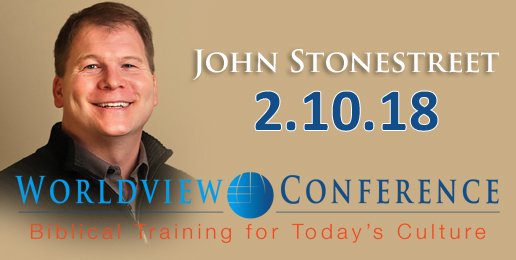In his recent Christianity Today (CT) blog post, New Testament scholar Scot McKnight defends recently retired CT president Mark Galli’s hubristic diktat about the necessity—in Galli’s view—of Trump’s removal from office:
Whether Mr. Trump should be removed from office by the Senate or by popular vote next election—that is a matter of prudential judgment. That he should be removed, we believe, is not a matter of partisan loyalties but loyalty to the Creator of the Ten Commandments.
Trump’s removal from office would inarguably result in the election of a man or woman who endorses, among other things, human slaughter, the intentional creation of motherless and fatherless children for homosexuals, the chemical sterilization of gender-dysphoric minors, the sexual integration of private spaces, a diminution of religious liberty, and mandatory transpeak (i.e., the mis-sexing of cross-sex impersonators)—facts that cannot be ignored in this discussion.
In his blog post, McKnight tries unsuccessfully to recast Galli’s argument via the creation of a colossal strawman painted with an equally colossal brush. He argues that both support for and opposition to Galli’s argument—which in McKnight’s view was solely a moral judgment wholly devoid of political dimensions—reveals a philosophical commitment to “statism”:
At no time in my life have I seen the church more engaged in politics and more absorbed by a political story. … [M]ake no mistake, the American story is increasingly statism. … [S]tatism entails an inherent belief, either explicit or implicit, in the state. It is a belief that solutions to our biggest problems are found in the state and the Christian’s responsibility from the Left or the Right is to get involved and acquire political power. Statism as I am using it here is the idol of making a human the world’s true ruler. Statism exalts humans and human plans and voting. Statism centers its faith in the future on who rules in D.C. Statism makes government a god. … Those who think the CT editorial meant support for the other party are statists. Those who think it meant support for their party are statists. Neither was the case. It was a moral judgment.
McKnight’s strawman is constructed out of a dollop of redefinition, a smidge of ambiguity, and a dearth of nuance. Take special note of McKnight’s critical admission: “Statism as I am using it here” (emphasis added).
The church has always been deeply involved in political issues that are at their core, biblical. That’s why the church was involved in the abolitionist movement and the Civil Rights Movement, both of which created hostility and division within the country.
Statism is typically defined as “centralized government administration and control of social and economic affairs.” As such, deep concern by conservative Christians about the expansion of government, its encroachment into spheres of life where it doesn’t belong, and its promotion of evil as good is not tantamount to “statism.” In fact, such concerns and efforts to participate in the project of self-government to remedy these offenses against truth and liberty are the antithesis of “statism.” The desire to reduce the size and scope of government, to protect human life, and to strengthen support for the First Amendment so as to allow individuals, families, and churches to flourish cannot rationally be conceived of as “statism.”
While the belief that Galli’s editorial “meant support for the other party” may have been wrong, such a belief is not proof of statism. Moreover, while Trump’s removal from office may or may not signify support for the other party, it certainly means the other party will have even more opportunity to harm individuals, the family, and the church.
McKnight implies that Christians believe solutions to all our biggest problems are found in the state, whereas many Christians have more reasonable beliefs. They believe that elected leaders can pass policies and laws, make judicial appointments, and issue executive orders that embody and reflect either good or evil, truth or falsehood, wisdom or foolishness, and that either contribute to or undermine human flourishing.
They value religious liberty and speech rights. They seek justice for humans in the womb. And they are deeply thankful for the blessing of self-government that the oppressed from all around the world come to America to enjoy. And yes, they feel passionate about these issues, which, while political, are first and foremost, biblical, which makes their moral judgments sound.
But apparently McKnight sees the passionate desire of Christians to elect leaders who will protect humans in the womb, women in the locker room, and religious liberty as an idolatrous quest for power and proof of statist drives. Did he feel that way about William Wilberforce’s tireless efforts to end the slave trade in England or Dr. Martin Luther King Jr.’s divisive efforts to end the egregious violations of the civil rights of African Americans?
Paul teaches that “there is no authority except from God, and those that exist have been instituted by God.” So, who is the authority God has instituted here in America? We, the people, are. Christians who feel passionately about the importance of exercising the blessing of self-government through voting and who believe a flawed man who has implemented policy decisions wiser than the ones his opponents would implement are not making an idol of him or exalting human plans. They are properly exercising their authority instituted by God.
Mcknight also believes that “progressive” Christian Randall Balmer was right when he asserted that
Christianity operates best from the margins of power, not in its center. Too many today think the solutions to our problems are anchored to the one leading the White House.
I’m not sure who Balmer and McKnight hang out with because no Christian I know believes that “the solutions to our problems are anchored to the one leading the White House”—at least not all the solutions to all our problems.
Many Christians believe, however, that some of the solutions to some of our problems can be remedied by elected government leaders, including, of course, the president. Do Balmer and McKnight believe no solution to any problem can be found in the decisions of our president?
While many Christians supported candidates other than Trump during the primary, when the General Election arrived, the choices were between two morally flawed candidates—one of whom offered some glimmer of hope for decisions that would contribute to human flourishing. That candidate—Donald Trump—has made judicial appointments, issued executive orders, and implemented policy decisions that have surprised many conservatives—decisions for which they are thankful.
Appreciation for these good decisions no more constitutes “wholesale evangelical support” for Trump than presumably CT’s support for the work of Karl Barth constitutes wholesale support for this deeply sinful man.
In a 2017 article about Thomas Jefferson’s affair with his slave and theologian Karl Barth’s decades long affair with his assistant, whom he brought to live in his home despite the pain it caused his wife, Mark Galli wrote,
In light of these profound contradictions, what are we to do with the messages of each of these men? Does their behavior tarnish their ideas? … I don’t think so. … Like many, I’ve long hoped to find a heroic human figure whom I can admire unflinchingly. But time and again, I’ve had to discover there is no such person. Well, except the one known as the True Man, who dialectically enough has been known to use ignoble things to shine forth his glory.
Are Donald Trump’s achievements commensurate with those of Thomas Jefferson or Karl Barth? No, but that’s irrelevant to the arguments of Galli, and presumably Dalrymple and McKnight. Their arguments concern whether it is moral for Christians to vote for a morally flawed candidate with better policies than his opponent, and whether admiration for the good policies he has effected constitutes idolatry.
Balmer wants Christians to be marginalized except when he doesn’t. Balmer waxes enthusiastic about times when Christians “set the social and political agenda” for the country:
For years, I have argued in books, articles, op-eds and even a couple of documentaries that evangelicalism, in contrast to the Religious Right, has a long and distinguished history. Evangelicals set the social and political agenda for much of the 19th century. They advocated for the poor and the rights of workers to organize. They supported prison reform and public education. They enlisted in peace crusades and supported women’s equality, including voting rights.
Apparently, Balmer wants Christians on the margins of power only when he disagrees with their social and political agenda.
Still reeling from the 2016 election, Randall Balmer confesses,
I should be over it by now, but I confess that the number 81 continues to haunt me. Following the shock of Election Day 2016, the further news that 81% of white evangelicals supported Donald Trump was devastating to me personally. These were the same people who had been telling us for the past four decades that they were devoted to “family values,” but then they pivoted and, without hint of irony or apology, cast their votes for a twice-divorced, self-confessed sexual predator. … I was, well, devastated.
Here’s what Dr. King, a profligate philanderer—whom CT, with no hint of irony or apology, celebrates—said about Christians and political power:
I have watched many churches commit themselves to a completely other worldly religion which makes a strange, un-Biblical distinction between … the sacred and the secular.
…
There was a time when the church was very powerful–in the time when the early Christians rejoiced at being deemed worthy to suffer for what they believed. … Whenever the early Christians entered a town, the people in power became disturbed and immediately sought to convict the Christians for being “disturbers of the peace” and “outside agitators.” But the Christians pressed on, in the conviction that they were “a colony of heaven,” called to obey God rather than man. Small in number, they were big in commitment. They were too God-intoxicated to be “astronomically intimidated.” By their effort and example they brought an end to such ancient evils as infanticide and gladiatorial contests. Things are different now. So often the contemporary church is a weak, ineffectual voice with an uncertain sound. So often it is an archdefender of the status quo. Far from being disturbed by the presence of the church, the power structure of the average community is consoled by the church’s silent–and often even vocal–sanction of things as they are.
It’s a good thing the early Christians Dr. King described didn’t allow the “reputation” of the church to determine their actions.
McKnight, perhaps accurately, prophesies what Christianity “Tomorrow” will look like:
Evangelicalism … is shifting. … Christianity will be a justice-oriented evangelicalism.
Unlike many evangelicals, McKnight finds such a shift to be a good thing, citing favorably new CT president Timothy Dalrymple’s vision for both CT and evangelicalism:
Out of love for Jesus and his church, not for political partisanship or intellectual elitism, this is why we feel compelled to say that the alliance of American evangelicalism with this presidency has wrought enormous damage to Christian witness. It has alienated many of our children and grandchildren. It has harmed African American, Hispanic American, and Asian American brothers and sisters. And it has undercut the efforts of countless missionaries who labor in the far fields of the Lord. While the Trump administration may be well regarded in some countries, in many more the perception of wholesale evangelical support for the administration has made toxic the reputation of the Bride of Christ.
…
[Trump] is a symptom of a sickness that began before him, which is the hyper-politicization of the American church. This is a danger for all of us, wherever we fall on the political spectrum. Jesus said we should give to Caesar what is Caesar’s and to God what is God’s. With profound love and respect, we ask our brothers and sisters in Christ to consider whether they have given to Caesar what belongs only to God: their unconditional loyalty.
Some thoughts on Dalrymple’s thoughts:
- It’s out of love for Jesus and his church, not for political partisanship, that many Christians feel compelled to support President Trump. It’s out of their deep desire to protect those who are knitted together in their mothers’ wombs that many in the 81% that give Randall Balmer the heebie-jeebies feel compelled to support this presidency. It is out of love for God who created man male and female that Christians support Trump. Are those idolatrous statist desires?
- Has Trump’s presidency harmed African Americans, Hispanic Americans, and Asian American brothers and sisters? How so? What’s Dalrymple’s evidence?
- For McKnight to cite Dalrymple’s concern for the “reputation of the Bride of Christ” is ironic because McKnight doesn’t view marriage —the earthly picture of Christ, the Bridegroom, and his church, the Bride of Christ—as an essential Christian creed:
The issue is that essentials of the faith and theological robustness speak to the Christian creeds and not to anything about marriage.
In contrast, Professor Anthony Esolen, writing in Touchstone Magazine, says this about marriage:
The marriage of man and woman is an image of Christ’s union with his bride the Church (Eph.5:32, Rev. 21:20), and that is meant as no mere poetry. The madness of our time would reduce the Bible’s most exalted revelation of the nature of the divine image in man and of the union of God with man to a figure of speech.
Of course, it’s possible to believe the historical understanding of marriage is non-essential and still be concerned about the reputation of the bride of Christ in the world, but Dalrymple’s assertion and McKnight’s admiration for it raises the question, does the world hate evangelicals more for their support—often grudging—of President Trump or for their support for marriage as intrinsically and unalterably the union of one man—the earthly representation of Christ—and one woman—the earthly representation of the church? (If marriage is the picture of Christ and the church, what does same-sex “marriage” mean other than that there is no distinction in nature or function between Christ and the church? And how would that implicit claim be non-essential?)
- Since the alienation of children and grandchildren is offered as justification for abandonment of Trump in favor of morally flawed candidates who endorse evil policies, what do McKnight, Dalrymple, and Galli make of Jesus’ words from Matthew 10:
Brother will deliver brother over to death, and the father his child, and children will rise against parents and have them put to death, and you will be hated by all for my name’s sake. … Do not think that I have come to bring peace to the earth. I have not come to bring peace, but a sword. For I have come to set a man against his father, and a daughter against her mother, and a daughter-in-law against her mother-in-law. 36 And a person’s enemies will be those of his own household.
Now that’s some serious familial alienation Jesus has promised us.
Will McKnight, Dalrymple, and CT reject the non-essential understanding of marriage if it makes “toxic” the reputation of evangelicals in the world? Will they reject the non-essential biblically based understanding of marriage if it alienates many of our children and grandchildren?
- Voting for Trump does not demonstrate idolatrous worship of (or “unconditional loyalty” to) him anymore than voting for any of the candidates who heartily endorse human slaughter and soul-destroying sexual immorality would demonstrate “unconditional loyalty” to them.
How would the world respond if evangelicals supported someone as morally degenerate as Pete Buttigieg, whose degeneracy—one could argue—far surpasses Trump’s? The world would rejoice. By currying favor with the world, the church’s “reputation” would shine because the church would now be in the world and of the world. But that shine would not be from the true light of the True Man.
Listen to this article read by Laurie:
https://staging.illinoisfamily.org/wp-content/uploads/2020/01/Are-Politically-Engaged-Conservative-Christians-Idolaters.mp3
IFI is hosting our annual Worldview Conference on March 7th at the Village Church of Barrington. This year’s conference is titled “Thinking Biblically About Our Corrosive Culture” and features Dr. Michael Brown and Dr. Rob Gagnon. For more information, please click HERE for a flyer or click the button below to register for the conference.




 The decline in a Christian-based worldview is illustrated in the graphic posted to the right.
The decline in a Christian-based worldview is illustrated in the graphic posted to the right.
